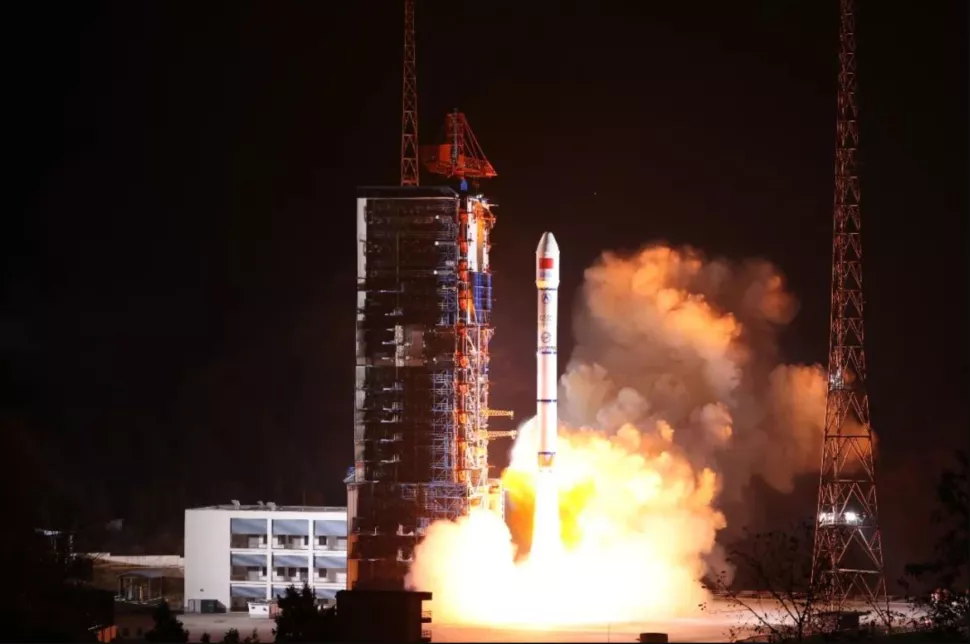China successfully launched a satellite into space on Tuesday, state broadcaster CCTV reported.
“On January 9, 2024, at 15:03 Beijing time (07:03 GMT), China successfully launched the Einstein Probe satellite,” CCTV said.
The launch caused concern in Taiwan, where officials issued urgent phone messages warning the public to “please be mindful of your safety.” Taiwan’s foreign minister said the warning was issued due to possible “debris”.
The Einstein probe was launched from the Xichang Satellite Launch Center in southwestern Sichuan province, about 2,000 kilometers (1,243 miles) from Taiwan’s capital Taipei, state media reported.
CCTV said the satellite was “launched using the Long March-2C launch vehicle… and the satellite entered the designated orbit.”
The satellite will “observe mysterious transient events comparable to the flickering of fireworks in the universe,” the state-run Xinhua news agency said on Tuesday. Xinhua added that the project will aim to reveal “the violent and little-known aspects of space.” In the images broadcast by CCTV, the white rocket is seen floating into the air in a cloud of white smoke before leaving orbit.
Yuan Weimin, the scientist leading the project, described it in state media as “the most beautiful satellite I’ve ever seen”.
Plans for China’s “space dream” were shelved under President Xi Jinping. The world’s second-largest economy has poured billions of dollars into its military space program to catch up with the United States and Russia. In October, the country sent a new crew to the Tiangong space station, the latest crewed mission of a growing space program that plans to send humans to the moon by 2030.
In the annual report submitted to Congress by the US Department of Defense last year, it was stated that China carried out 60 successful space launches and placed 180 satellites into orbit in 2022; This is five times more than five years ago. The report also placed China second after the United States in the number of operational satellites.













